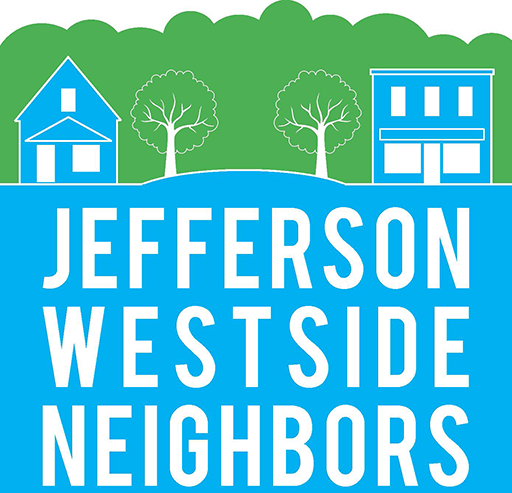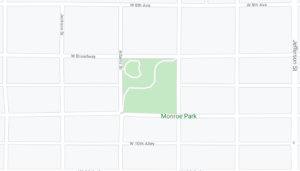Where Can People Go? City of Eugene Homeless Services Immediate Policy Recommendations
Updated July 7, 2020
The following document was unanimously endorsed by the JWN Executive Board submitted to City Council on June 8, 2020.
A conversation borne from frustration for how the unhoused were managed during the COVID 19 crisis and the resulting neighborhood impacts between myself, Heather Selicki Operations Coordinator at White Bird, and Laurie Hauber, Staff Attorney, Oregon Law Center/Lane County Legal Aid has resulted in a series of recommendations for mitigating some of the impacts of homelessness on neighborhoods as well as blunting the effects on homeless people of using police, with the resulting high costs, to enforce the camping ban. We feel that these are relatively minor adjustments that do not involve changes in ordinances, still regulates camping, and can set us on a path for a more serious effort on short term harm reduction. It also places agency and responsibility on the homeless themselves as well as starting a conversation on the best uses for sworn officers. Moreover, these recommendations can set the stage for future cooperation between service providers, neighborhoods, businesses, and the city and county on practical solutions.
Where Can People Go? City of Eugene Homeless Services Immediate Policy Recommendations
“For those of us working on policies that intersect with re-opening and law enforcement, we can make public our commitment to establishing policies that don’t create more harm.” – Oregon Public Health Association
In the past three months, social distancing measures have left us with only 250 shelter beds for the thousands of people experiencing homelessness in Lane County, 45% fewer spaces than we had at this same time last year. On Friday, the temporary respite sites that provided overflow capacity for people to shelter-in-place will close, leaving those who sought refuge there to join with the flood of newly unhoused people as residential evictions resume.
Dr. Anthony Fauci, the Federal advisor on the COVID-19 pandemic, along with top epidemiologists, have stated that without a vaccine this virus will likely be with us for the next six to twelve months or more. The CDC clearly recommends that the unhoused need sanctioned places to shelter in small social distancing groups. Lane County has a population of 4,100 unhoused people. Research estimates that up to 40% of people experiencing homelessness could be infected during the peak of the COVID-19 epidemic without efforts to prevent the spread of this disease.
The City and County have expended significant time and money responding to unhoused complaints: citing, arresting, adjudicating, and jailing the unhoused because they do not have the resources to maintain shelter, sanitation, or garbage disposal. Penalizing people for having nowhere to go has tremendous costs, both to the unhoused individuals and the community at large. Whether intentional or not, punitive measures against people who are unhoused create additional, often insurmountable barriers for people to access housing and employment. The accumulation of debt from unpaid fines, which adversely impacts credit scores, along with outstanding warrants and/or jail time traps people in a cycle of homelessness that becomes increasingly difficult to overcome.
The mere threat of a citation takes a significant toll as well. This fear, along with frequent move-along orders force people into more remote, less secure settings where the risk of being a victim of a crime increases, and the constant fear of being a victim poses detrimental health risks. In addition, maintaining the current system is very expensive, it is far less costly on communities for people to have housing. Policing the homeless for their mere status of being unhoused overcrowds our court system and our jails and diverts much-needed resources away from addressing crime that is a real threat to public safety. With limited resources, preventing noncriminal interactions with the police should be a priority.
The immediate recommendations below are proposed short-term policy changes to minimize the risk of spreading COVID-19 and until additional temporary sheltering locations have been established. This is in the best interests of all citizens of Eugene, housed and unhoused.
Recommendation 1.
Define places where sheltering in place, including sheltering in a vehicle, is prohibited at all times, such as residential areas*, within 15 feet of building entrances and the Downtown Activity Zone (other cities have enacted similar measures). *Excluding sanctioned shelter sites (e.g. Rest Stops).
Recommendation 2.
City Council should direct law enforcement to follow CDC guidance and not disperse existing temporary shelters to other locations as long as there are no violations such as private property trespass or other criminal behavior, and the site does not pose a significant health and safety risk that outweighs the need for individuals to shelter in place. It is important to note that there are several examples around the country of cities that modified their enforcement practices in the past few years with respect to laws that disproportionately impact the unhoused, including practices to minimize closure of encampments until viable shelter or housing becomes available.
Establish guidelines for people in unsanctioned sites to protect health and safety and to reduce the need for law enforcement to shut down a temporary shelter site. It must be clearly communicated that unsanctioned camping is a violation of Eugene Code 4.815, Prohibited Camping, and therefore the site could be closed by EPD at any time. The purpose of these guidelines is to give individuals concrete information to help them maintain a healthy, safe living situation that does not interfere with surrounding residents and businesses.
Recommendation 3.
Establish an alternative dispatch system to using law enforcement when a complaint only involves prohibited camping and there is no threat to public safety or crisis response necessary. Instead of directing callers to the Eugene Police Department’s non-emergency line or Public Works, create a “One Point of Contact” type reporting system available online or by phone staffed by trained information and referral specialists (possibly managed by designated nonprofit) to assess resource needs, track interactions, and provide follow up communication.
Supporting groups might include adequately trained service-based nonprofits, faith organizations, businesses, or neighborhood associations.
Recommendation 4.
Require non-EPD sworn officers as the first responders when a complaint only involves prohibited camping and there is no threat to public safety (in addition to the City’s outreach team, this could involve CSO’s and possibly designated nonprofits). This would reduce EPD’s expenses and is more likely to result in a positive outcome with the unhoused.
Partnerships with security agencies could provide support when problems occur to assist support teams and divert the need for police involvement. Supporting groups to serve as responders could include service-based nonprofits, faith organizations, businesses, and neighborhood associations.
In Support:
Service Providers
Laurie Hauber, Staff Attorney, Oregon Law Center/Lane County Legal Aid
Heather Sielicki, White Bird Clinic Operations Coordinator
Alex Farmer, White Bird Clinic Front Rooms Program Coordinator
Benjamin Brubaker, White Bird Clinic Executive Director
Chris Hecht, White Bird Clinic Executive Director
CN Applegate, White Bird Board of Directors, VP
Priscilla Gould, Chair PacificSource Foundation for Community Health and Retired United Way of Lane County Executive Director
Dan Bryant, SquareOne Villages
Kirstin London, Human Rights Commission
Wayne Martin, Nightingale, House Everyone, and pastor
Amanda Hampton, Looking Glass Rural Program Supervisor
Amanda Hampton, Program Supervisor, Looking Glass Rural Program
Douglas L. Bovee, MD, Community Supported Shelters, Board President
Carrie Copeland, Community Supported Shelters Board Secretary
Terry McDonald, Executive Director, St. Vincent De Paul
Mike Yoshioka, St. Vincent de Paul of Lane County Youth and Family Services Manager
Elaine Walters, Trauma Healing Project
Paul Solomon, Sponsors Executive Director
Laura Johnson, Sponsors Director of Program Development and Amazon Neighbors
Michelle Hankes, ShelterCare Executive Director
Renee Yandel, Executive Director, HIV Alliance
Faith Community
Rabbi Ruhi Sophia Motzkin Rubenstein, Temple Beth Israel
Ruba Byrd, Pastor, Eugene Friends Church
Eugene Sufi Council
Sheryl Balthrop, Eugene Mission Executive Director
Julie O’Hara, Executive Pastor, Eugene First – Church of the Nazarene
Businesses
Nick Ciufo, President, Tao Gardens
Dan Issacson, CEO, Nakd Farms
Neighborhood Association Boards
Neighborhood Leaders Council
Jefferson Westside Neighbors
Friendly Area Neighbors
Northeast Neighbors
Southwest Hills Neighborhood Association
Southeast Neighbors
South University Neighbors Association
Neighborhood Association Board Members
Anne Millhollen, Chair, Neighborhood Leaders Council Committee on Housing and Homelessness and North East Neighbors, East Area (1) Representative
David Saul, South Eugene Neighbors, Board member
Ian Winbrock, Co-Chair, Neighborhood Leaders Council, At-large board member, Whitaker Community Council
Kara Steffensen, Chair of Amazon Neighbors Association
Melissa Takush, Board Member and Social Media Manager, Amazon Neighbors Association
Rachael Latimer, Board Member, Amazon Neighbors Association
Residents
Steve Piercy, Co-Chair, Friendly Area Neighbors Transportation Committee
Branden B. Johnson, resident of Eugene, JWN, and Ward 1 for the past 7 years
Richard Self aka Sam Broadway KEPW Newsday, Eugene
Debbie Hebert, South Eugene Neighbors
Jay Mosely, JWN and Westside Shelter Search Team
David Huffman, Jefferson Westside Neighbors
Stephanie J. Coopman, Jefferson Westside Neighbors
Nancy Hafner, Jefferson Westside Neighbors
Chris O’Neill, Jefferson Westside Neighbors
Paul and Peggy Boudin, Jefferson Westside Neighbors
Vanessa Wheeler, Jefferson Westside Neighbors
Sharon Hawks, Jefferson Westside Neighbors
Derek Lamson, N/A
Susan Lax, Southeast Neighbors
With Caveats
Lane Independent Living Alliance: LILA supports the recommendations, but we ask for specific wording “accessible sites” as this is essential for people who experience disability.

